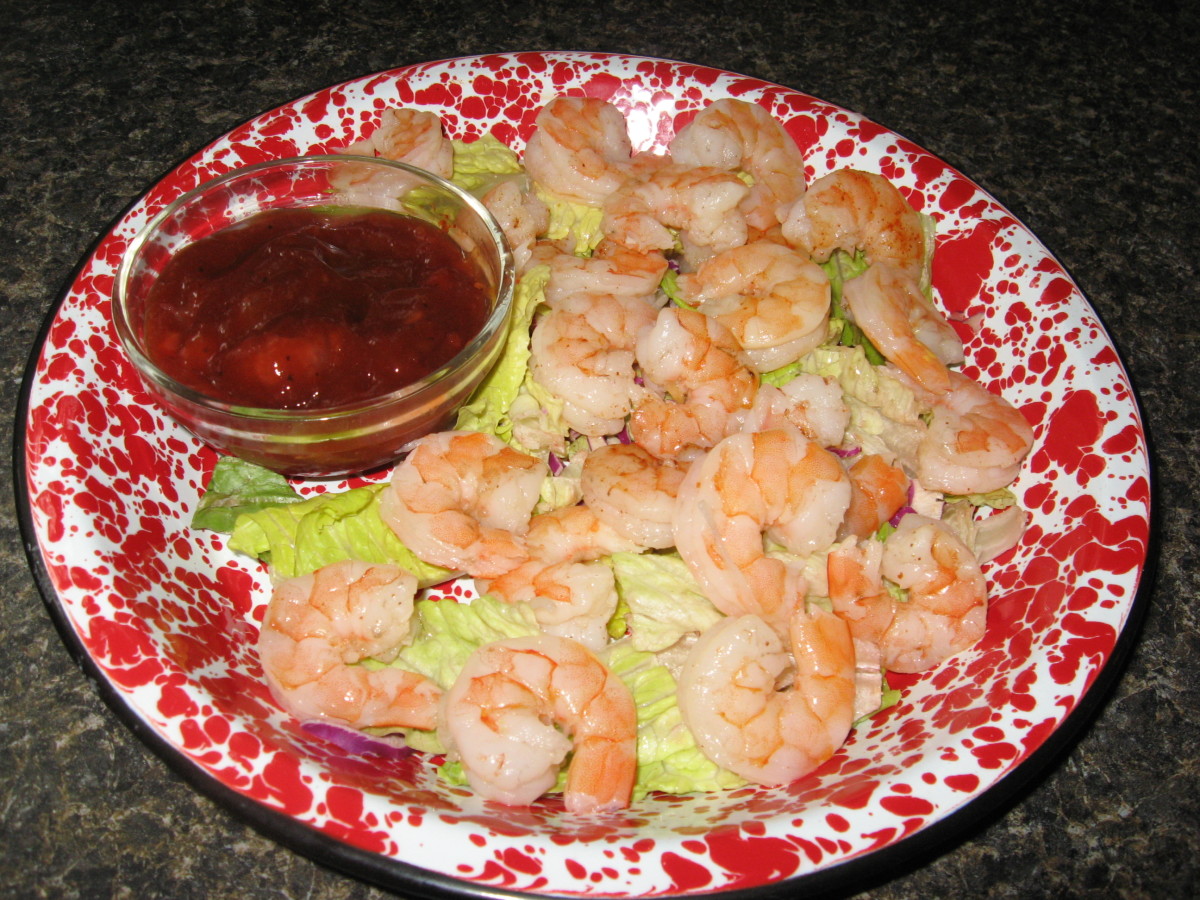A Pre Diabetic Diet
How To Stop the Progress Toward Type 2 Diabetes
The pre diabetic diet is what we should have been eating all along. It will, if we can stick with it, prevent us pre-diabetics from sliding further into Type 2 Diabetes.
I'm referring to a diet as a "way of eating", not as something we only do for a limited time.
The mainstream providers of information on the subject are perhaps too strongly influenced by the powerful industries that produce and process our food.These industries buy a lot of advertising so the media don't want to offend them. Non-profit groups like the American Diabetes Association also seem willing to turn a blind eye to scientific proof that certain foods and food ingredients are less than helpful at preventing diabetes. Are they bought off by the donations made by the food industry?
And, it appears that for too many Americans, the conventional wisdom on how to construct a pre diabetic diet just isn't producing the desired results.
Can we agree that most of the world can over time, if exposed to the Standard American Diet, become pre-diabetic?
As children we were taught that "Milk builds strong bones," and "Beef is what's for dinner". When we look around at the more than two-thirds of our population that is oveweight or actually obese, are you open to considering that perhaps we were misled?
Now, admittedly, there are many other factors at play in the dietary morass we find ourselves in. Diet authors and nutrition researchers are having a field day -- each one selecting this or that tiny piece of the puzzle. It's no wonder the public is confused.
Where is the "Unified Field Theory of Weight Loss"? How can we make sense of all this?
One author singles out High Fructose Corn Syrup (HFCS) as the key factor causing the obesity epidemic. In my experience, as a pre-diabetic who has been trying to figure out what I can safely eat for more than 40 years, I took note of my reaction to the first HFCS-sweetened soda I drank in the early 1980s. It hit me differently, no doubt, and the scientific research since that time has shown that HFCS is metabolized differently than sucrose.
Certainly the timing of the introduction of HFCS into soft drinks -- the early 1980s, when the graph of American obesity took a sharp turn upward -- is a convincing indicator that this was a major turning point in the loss of control over our weight.
But HFCS Is Far From the Only Ingredient We Must Avoid in a Pre Diabetic Diet
Author Bill Sardi draws attention to the iron supplementation and the removal of bran and the IP-6 molecule bran contains. The removal of fiber with the goal of increasing shelf life is, no doubt, a big factor in turning off our ability to tell that we are "full" and it's time to stop eating.
The list of suspects in this dietary mystery doesn't stop there, though.
Neurosurgeon and author Dr. Russell Blaylock brings to our attention another significant factor in our loss of control over our appetite: Excitotoxins.
I find this compelling, too. The research showing that one of the notable effects on laboratory animals fed the artificial sweetener Aspartame -- a major excitotoxin -- is that it produces obesity, even without increasing the subject animals' caloric intake.
Adding to the persuasive weight of this information is my reading about the flavor chemists (flavorists) who design our foods with the intention of making it difficult for the consumer to stop eating. I learned about this chemical seduction of the American public in the book, Fast Food Nation, by Eric Schlosser.
"Bet you can't eat just one" is a tacit admission that the deck is stacked against the American snacking public.
Just a casual reading of the ingredient panels on potato chips and other snack foods confirms that excitotoxins, such as MSG and its many analogs, are the food manufacturers' hidden "Aces" for maximizing their snack sales.
(I am fortunate in being sensitive to the effects of excitotoxins. That, and my willingness to exclude questionable ingredients from my diet, has protected me from the unexplained illnesses and cancers that are wrecking the retirement plans of many of my generation.)
Another compelling argument is made by Dr. Joel Wallach, a veterinarian and naturopathic doctor, who points out the depletion of trace and major minerals seen in U.S. soils over the years since farmers stopped returning composted manure and other soil amendments to their fields. Dr. Wallach also brings to the table the knowledge of how various mineral supplements have long been shown to reduce livestock mortality. Why have the USDA and Food & Drug Administration been so opposed to letting nutritional supplement marketers alert the public to proven successes in reducing disease with supplements that replace critical elements missing in our processed diet grown on depleted soils?
Reference Books
Sugar -- The Bitter Truth
With all these factors to consider, it is no wonder the public is confused
Purposely adding to the confusion are the stealthy propaganda campaigns by industry groups like the High Fructose Corn Syrup purveyors with their Sweet Surprise commercials and Web site. I, personally, prefer to get my nutritional information from scientists who have little to gain from blowing the whistle on the biological effects found in the molecule-by-molecule examination of how HFCS is metabolized differently from the more familiar Sucrose ("table sugar", pure cane sugar, etc.) Photogenic actors who mouth profound lines around the dinner table fail to persuade me -- they say what they're paid to say. A professor and researcher puts his or her reputation and future employment at risk by taking a contrary view. They do not undertake this risk lightly. (See the Robert Lustig Video, above.)
This confusion suits the purposes of the Processed Food Manufacturers
Those who haven't yet been diagnosed with pre-diabetic symptoms (yet) can go back to reading the sports pages believing that they will be spared if they follow the rest of the mainstream "herd". Little do they realize that representatives of the Food and Drug Industries are disproportionately seated in the policy groups that make public pronouncements telling us how safe HFCS, animal foods at every meal, and even GMOs are.
The mainstream media are effectively bought off by their need for the advertising dollars of the GMO producers, as we recently saw in the California Proposition 37 vote fight. Monsanto lobbyists made newspaper editors "an offer they couldn't refuse" and the editors obliged them with critical editorials of Prop. 37. (This has little to do with pre-diabetes -- as far as we know -- but it illustrates how the politics of money dictate what is recommended as "safe" in our diet.)
When close to seventy percent of Americans are overweight or obese, it only makes sense to discard most recommendations of the mainstream voices who are profiting by the status quo of massive sickness, obesity, and premature death. No fundraising efforts and no wearing of pink ribbons is going to win the battle of American obesity until we take the good advice of a choir of disparate advisers and throw out all the factors causing it.
Throwing out most processed foods and eating a pre diabetic diet of whole grains, legumes, vegetables, and fruit, has -- in my experience -- been a good starting point to lifelong health. Being actively aware of our weight and fitness are also useful indicators we need to follow, not TV gurus or most pharmaceutical-pushing doctors. We are all ultimately the guardians of our own personal health -- and we need to control what we're putting into our mouths.
To Learn More About the Ideal Pre-Diabetic Diet, See This:
- Pre Diabetic Diet -- How To Reverse Diabetes Symptoms
The Pre Diabetic Diet Is Clinically Proven to Restore Insulin Sensitivity








